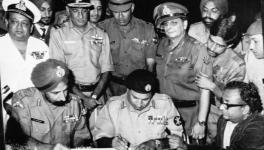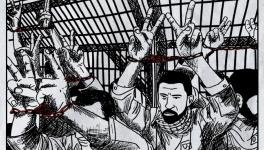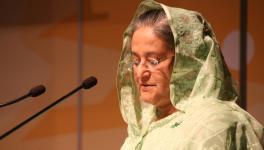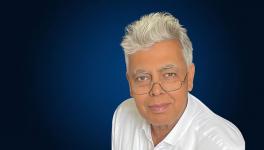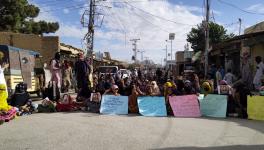Does a Blank Cheque for Sheikh Hasina Bode Well for Bangladesh?
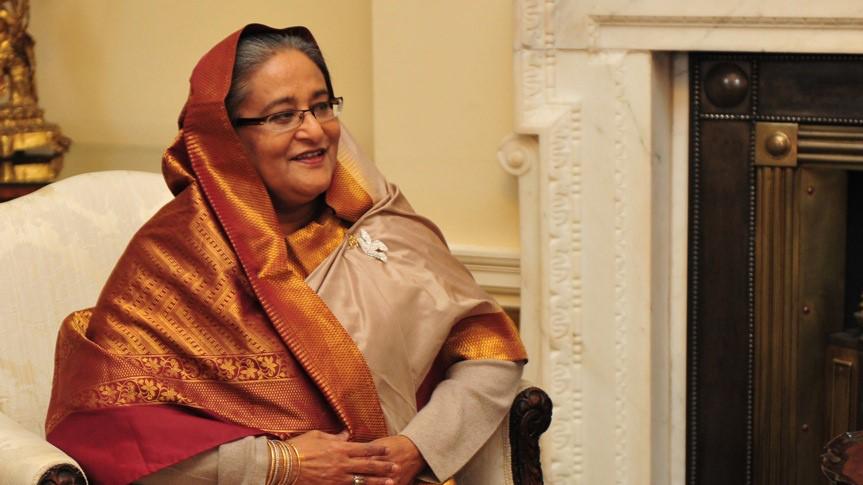
Image Courtesy: Wikipedia
Sheikh Hasina’s Awami League is headed to be in power for the third consecutive term following her landslide victory in Sunday’s national elections. While a win for the ruling alliance was anticipated, getting 288 of the 300 seats in Parliament was certainly not. It is the party’s best performance under Sheikh Hasina. The whitewash of the opposition has led to allegations of large-scale rigging.
The opposition has demanded a repoll and termed the election “farcical’’ as voters in many rural areas were intimidated and prevented from going to the polling booth by Awami League loyalists. Bangladesh elections have often been marred by violence but this time around the intimidation and violence was at its peak. Nearly 17 people were killed in election-related incidents.
The opposition coalition, led by former Awami League minister Kamal Hossain, who fell out with Sheikh Hasina, could win just six seats. "We are demanding that a fresh election is held under a neutral government as early as possible," he told reporters soon after the results were declared. The scale of the victory has raised eyebrows and convinced the opposition that ballot boxes were stuffed.
Hossain is heading the opposition Jatiya Oikya Front, which also includes the Bangladesh National Party. Its leader Begum Khaleda Zia, the traditional rival of Sheikh Hasina, was imprisoned on corruption charges earlier this year and barred from contesting. Her son, Tarique Rahman, has been tried in absentia and awarded life imprisonment in a case related to a grenade attack in 2004. He has long left the country and has been living in the UK. The BNP claims that the cases against Khaleda and her son are politically motivated.
Hossain, 81, is a respected lawyer. Though heading the Jatiya Oikya Front, he did not contest the election. He was a friend of Awami League founder and Hasina’s father Sheikh Mujibur Rahman and was one of the architects of the country’s constitution.
In the field of economy, Bangladesh has made remarkable progress under Sheikh Hasina and has notched up GDP figures as high as 7%. The country is the second largest garment exporter and earned as much as $35 billion in foreign exchange (though the country’s garment sector has been in the news for frequent labour rights violations). Bangladesh was also well ahead of India and Pakistan in achieving the Millennium Development Goals set by the United Nation in 2000.
However, Sheikh Hasina’s rule has been marred by what is seen by her opponents as an increasing tendency towards authoritarian rule and intolerance of the slightest criticism. Apart from political opponents, including her main rival the BNP, the Jamaat and other groups, the government has also cracked down on journalists. Reporters regard the Digital Security Act, passed earlier this year, as a hindrance to freedom of expression. The government has used the Information and Communication Technology Act to prosecute hundreds of people critical of the administration.
The main opposition --BNP -- boycotting the 2014 elections, protesting against Sheikh Hasina’s decision to scrap the caretaker government system to ensure that the ruling party would not have the advantage of government machinery for the polls, was a political miscalculation as the BNP was in a position then to perhaps win the elections or at least have a good presence in Parliament. Sheikh Hasina has ruled more or less without a proper opposition which has allowed the government to function without the necessary checks and balances. With the latest poll numbers Sheikh Hasina has been given a blank cheque to do what she pleases.
Absolute power is not a good thing for any democracy. It will be tough going for opposition politicians and critics who do not fall in line. The opposition is likely to hit the streets, demanding fresh elections. Whether this will make a difference is not clear. However, there are chances of hardline elements, including hot heads in the Jamaat and other Islamic militant groups, using the opportunity to fan discontent and spread jihadi ideas against a government considered a good example of moderate Islam.
While western democracies have been critical of Sheikh Hasina’s government for its human rights record, for India, the Awami League has been a true friend. By cracking down on North Eastern militant groups, which have long taken shelter in Bangladesh, and handing over ULFA militants to India since taking office, Hasina paid heed to India’s interests. Bangladesh is perhaps the only neighbour, besides Bhutan, whom Delhi can count as a friend. In fact, Prime Minister Narendra Modi was the first world leader to congratulate Hasina.
Bangladesh is a deeply divided country. Much of this has to do with the liberation war of 1971, when a religious party like the Jamaat-e-Islami was against the country’s independence from Pakistan. They collaborated with the Pakistan Army, and was responsible for rapes, murders and killings of Awami League families. When Bangladesh declared independence, most of the Jamaat leaders fled to Pakistan. The party was banned. But after the assassination of Sheikh Mujib, when the military took over under Zia-ur-Rahman, the Jamaat resurfaced. The ban was revoked. Zia finally got rid of his uniform and formed the Bangladesh Nationalist Party (BNP), while the Jamaat remained close to both the Army and the party.
Successive military governments in Dhaka ensured that no action was taken against the Jamaat leaders who had worked as fifth columnists. When Sheikh Hasina came to power for the first time in 1996, she did not have the numbers to go against those responsible for the killings. But since she assumed office in 2009, she has made sure that those responsible for murder and rape were punished. Awami League supporters had waited for closure long enough and their Prime Minister obliged. The War Crimes Tribunal has led to the hanging of several important Jamaat leaders. Human rights groups and western governments accused Bangladesh of unfair trials, but the families of those who saw their loved ones brutalized, finally got closure.
The challenge now for Sheikh Hasina is to not trample on the opposition’s democratic rights.
(Seema Guha is a senior journalist who has been covering foreign policy for decades. The views expressed are personal).
Get the latest reports & analysis with people's perspective on Protests, movements & deep analytical videos, discussions of the current affairs in your Telegram app. Subscribe to NewsClick's Telegram channel & get Real-Time updates on stories, as they get published on our website.













